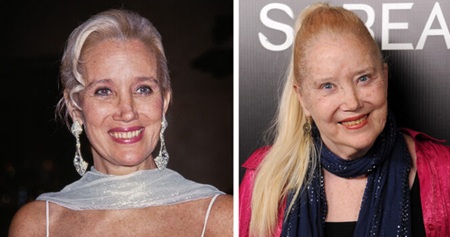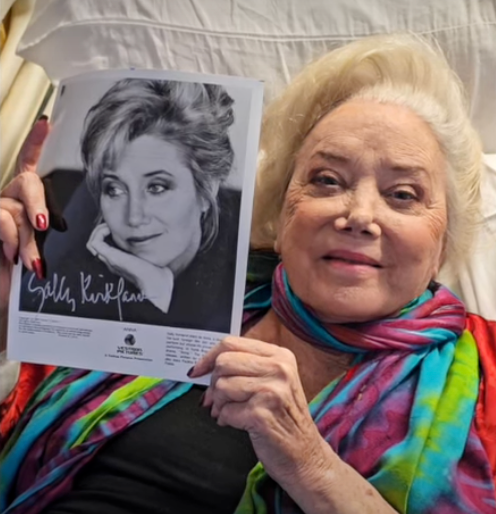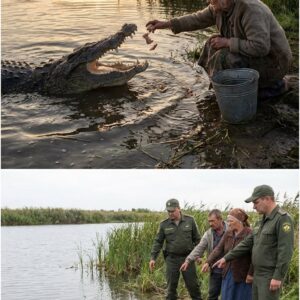
Sally Kirkland, the acclaimed Golden Globe-winning actress whose career spanned more than six decades across film, television, and theater, has passed away at the age of 84.
The news was first reported by TMZ, which confirmed that she had died just days after entering hospice care in Palm Springs, California.
Kirkland’s death marks the end of a remarkable life and career defined by creativity, resilience, and a steadfast commitment to the performing arts, leaving behind a legacy celebrated by colleagues, fans, and the entertainment industry worldwide.
In recent reports, it was revealed that Kirkland had been diagnosed with dementia last year, a condition that played a significant role in her move to hospice care.
Her final months were reportedly difficult, compounded by serious health challenges.
According to a GoFundMe page established by her friends, Kirkland had been battling “life-threatening infections” and suffered a fall in her shower, resulting in multiple injuries, including broken ribs, a foot injury, and numerous cuts and bruises.
The page, created to raise funds for her urgent medical care, highlighted the fragility of her health and the immediate need for support from those who cared deeply about her.
Friends, family, and admirers rallied around Kirkland during this time, demonstrating the love and respect she had cultivated throughout her life and career.
Sally Kirkland’s journey in the performing arts began after she pursued formal training at two of America’s most prestigious acting institutions: the Actors Studio and the American Academy of Dramatic Arts.
These foundational years provided her with rigorous classical training and immersed her in the craft of method acting, shaping her bold and versatile approach to performance.
In the 1960s, Kirkland became an integral part of New York’s Off-Broadway and avant-garde theater scene, participating in experimental productions that pushed boundaries and explored unconventional narratives.
During this period, she also spent time with Andy Warhol’s famous Factory, an association that connected her with some of the era’s most influential artists, filmmakers, and creatives.
These formative experiences in avant-garde theater and experimental art left a lasting mark on her style and informed the daring, fearless performances that would define her career.

Kirkland’s breakthrough in cinema came with her role in the 1987 film Anna, a performance that earned her an Academy Award nomination for Best Actress and a Golden Globe Award for Best Actress in a Drama.
In Anna, Kirkland portrayed a complex, emotionally charged character with nuance, intensity, and vulnerability, earning critical acclaim and establishing her as one of Hollywood’s most respected performers.
Her dedication to her craft and willingness to inhabit challenging roles allowed her to stand out in an industry often dominated by typecasting.
Throughout her career, Sally Kirkland appeared in over 200 films and television projects, displaying remarkable versatility and range.
Among her most notable film appearances were JFK, Oliver Stone’s political thriller, in which she contributed to a nuanced ensemble performance, and Bruce Almighty, where she showcased her comedic timing alongside Jim Carrey.
On television, Kirkland appeared in numerous series, including Roseanne, where her performances added both humor and emotional depth to the ensemble.
She also had memorable guest roles on shows such as ER, Law & Order, and NYPD Blue, demonstrating her adaptability across genres and mediums.
In addition to her screen work, Kirkland maintained a lifelong commitment to theater, returning repeatedly to the stage throughout her career.
Her performances in Off-Broadway and experimental productions exemplified her willingness to take creative risks, and she remained an influential figure in the theater community.
Many aspiring actors have cited her as a mentor and inspiration, noting her unwavering dedication to the craft and her fearless approach to complex and unconventional roles.
Kirkland’s ability to balance mainstream film work with avant-garde theater made her a unique presence in the arts, admired for both her talent and her artistic integrity.
Beyond her professional achievements, Kirkland was recognized for her perseverance and resilience in the face of personal challenges.
Her later years were marked by significant health struggles, including dementia and injuries sustained from a fall, yet she continued to inspire those around her with her courage and determination.
Friends, colleagues, and fans provided support during these difficult times, reflecting the deep bonds she had formed throughout her decades in the entertainment industry.
Sally Kirkland’s contributions to the arts were widely acknowledged by her peers. She was celebrated not only for her technical skill and emotional depth but also for her fearlessness in tackling challenging and often unconventional roles.
Her influence extended beyond the screen and stage, inspiring generations of performers to approach their craft with commitment, courage, and authenticity.
Tributes poured in from across the entertainment world following news of her passing, with actors, directors, and fans remembering her transformative performances, her generosity as a mentor, and her unwavering dedication to her art.
In reflecting on her legacy, it is clear that Kirkland’s impact on film, television, and theater will endure.
She was an actress who embraced complexity, depth, and emotional honesty in every role, leaving behind a body of work that continues to captivate and inspire.
Her performances in iconic films, beloved television series, and groundbreaking theater productions have ensured that her influence will be felt for generations to come.
Sally Kirkland’s life serves as a testament to the power of artistry, the importance of perseverance, and the enduring impact of a passionate, fearless performer.
Rest in peace, Sally Kirkland. From the experimental stages of New York to the bright lights of Hollywood, your remarkable career, your dedication to your craft, and the unforgettable characters you brought to life will continue to shine in the hearts of audiences and artists alike.
Your legacy reminds us of the beauty of artistic courage, the importance of creative exploration, and the profound influence one person can have through a life devoted to art.
Sally Kirkland, the acclaimed Golden Globe-winning actress whose career spanned more than six decades across film, television, and theater, has passed away at the age of 84.
The news was first reported by TMZ, which confirmed that she had died just days after entering hospice care in Palm Springs, California.
Kirkland’s death marks the end of a remarkable life and career defined by creativity, resilience, and a steadfast commitment to the performing arts, leaving behind a legacy celebrated by colleagues, fans, and the entertainment industry worldwide.
In recent reports, it was revealed that Kirkland had been diagnosed with dementia last year, a condition that played a significant role in her move to hospice care.
Her final months were reportedly difficult, compounded by serious health challenges.
According to a GoFundMe page established by her friends, Kirkland had been battling “life-threatening infections” and suffered a fall in her shower, resulting in multiple injuries, including broken ribs, a foot injury, and numerous cuts and bruises.
The page, created to raise funds for her urgent medical care, highlighted the fragility of her health and the immediate need for support from those who cared deeply about her.
Friends, family, and admirers rallied around Kirkland during this time, demonstrating the love and respect she had cultivated throughout her life and career.
Sally Kirkland’s journey in the performing arts began after she pursued formal training at two of America’s most prestigious acting institutions: the Actors Studio and the American Academy of Dramatic Arts.
These foundational years provided her with rigorous classical training and immersed her in the craft of method acting, shaping her bold and versatile approach to performance.
In the 1960s, Kirkland became an integral part of New York’s Off-Broadway and avant-garde theater scene, participating in experimental productions that pushed boundaries and explored unconventional narratives.
During this period, she also spent time with Andy Warhol’s famous Factory, an association that connected her with some of the era’s most influential artists, filmmakers, and creatives.
These formative experiences in avant-garde theater and experimental art left a lasting mark on her style and informed the daring, fearless performances that would define her career.

Kirkland’s breakthrough in cinema came with her role in the 1987 film Anna, a performance that earned her an Academy Award nomination for Best Actress and a Golden Globe Award for Best Actress in a Drama.
In Anna, Kirkland portrayed a complex, emotionally charged character with nuance, intensity, and vulnerability, earning critical acclaim and establishing her as one of Hollywood’s most respected performers.
Her dedication to her craft and willingness to inhabit challenging roles allowed her to stand out in an industry often dominated by typecasting.
Throughout her career, Sally Kirkland appeared in over 200 films and television projects, displaying remarkable versatility and range.
Among her most notable film appearances were JFK, Oliver Stone’s political thriller, in which she contributed to a nuanced ensemble performance, and Bruce Almighty, where she showcased her comedic timing alongside Jim Carrey.
On television, Kirkland appeared in numerous series, including Roseanne, where her performances added both humor and emotional depth to the ensemble.
She also had memorable guest roles on shows such as ER, Law & Order, and NYPD Blue, demonstrating her adaptability across genres and mediums.
In addition to her screen work, Kirkland maintained a lifelong commitment to theater, returning repeatedly to the stage throughout her career.
Her performances in Off-Broadway and experimental productions exemplified her willingness to take creative risks, and she remained an influential figure in the theater community.




